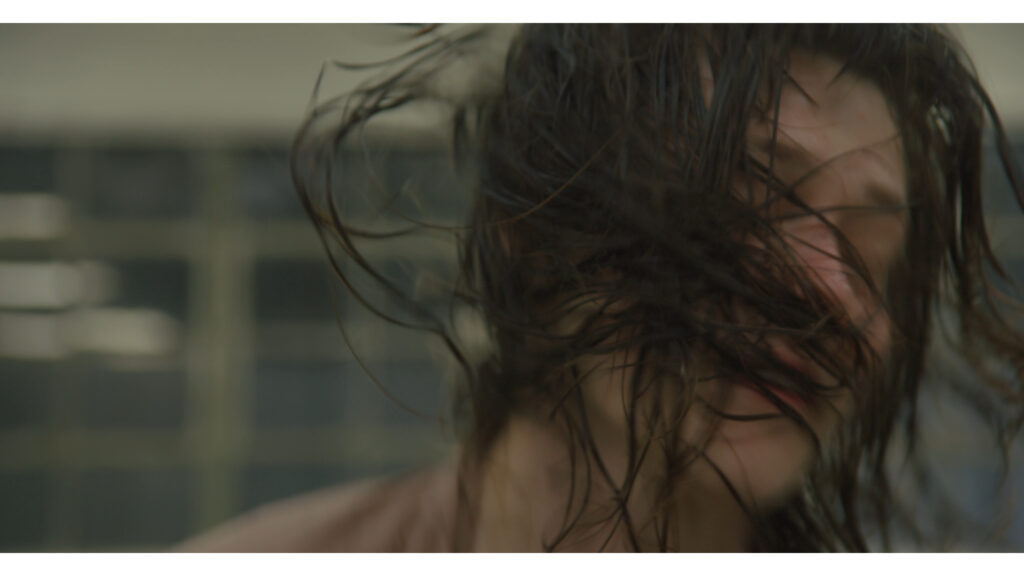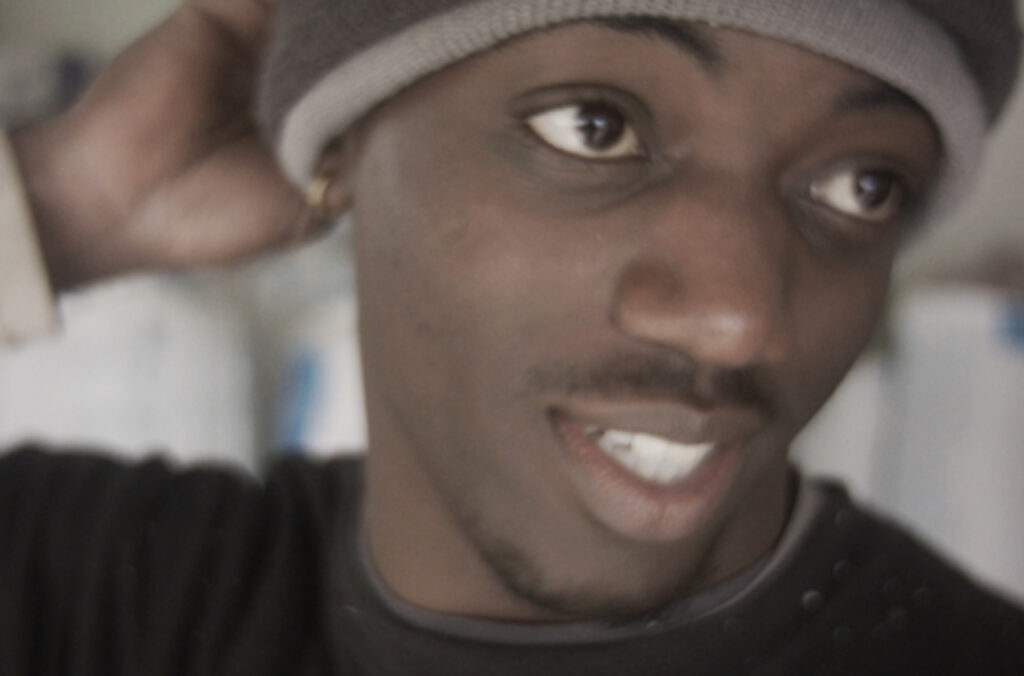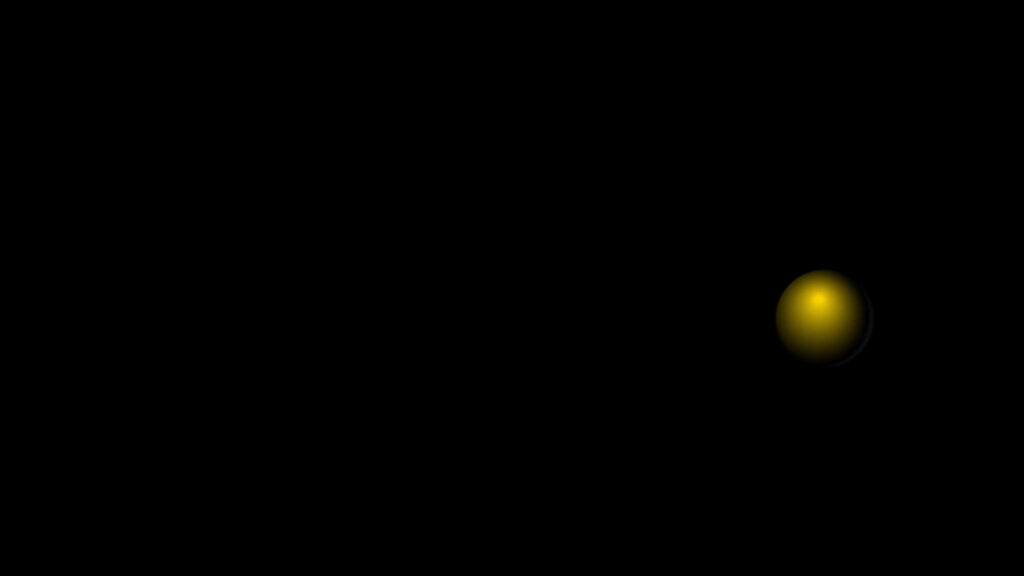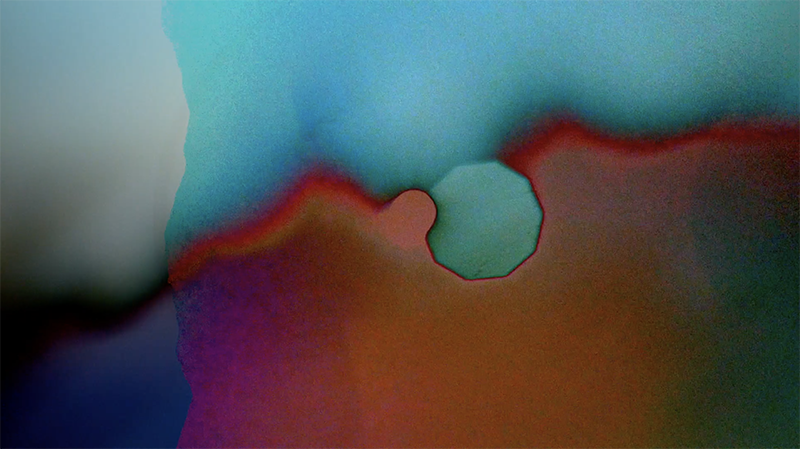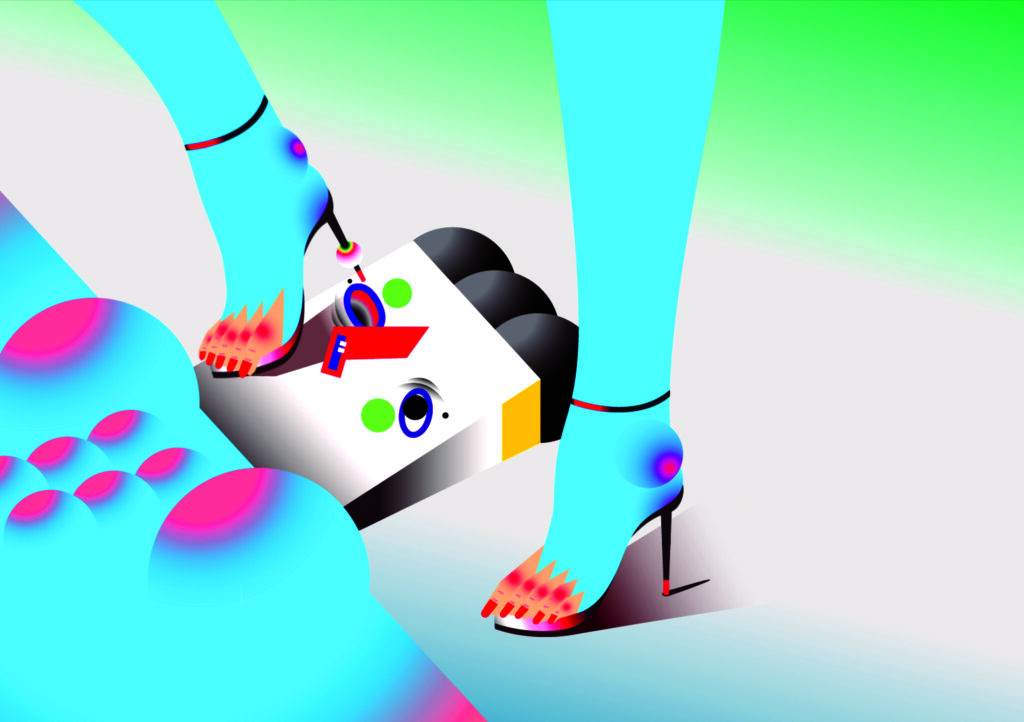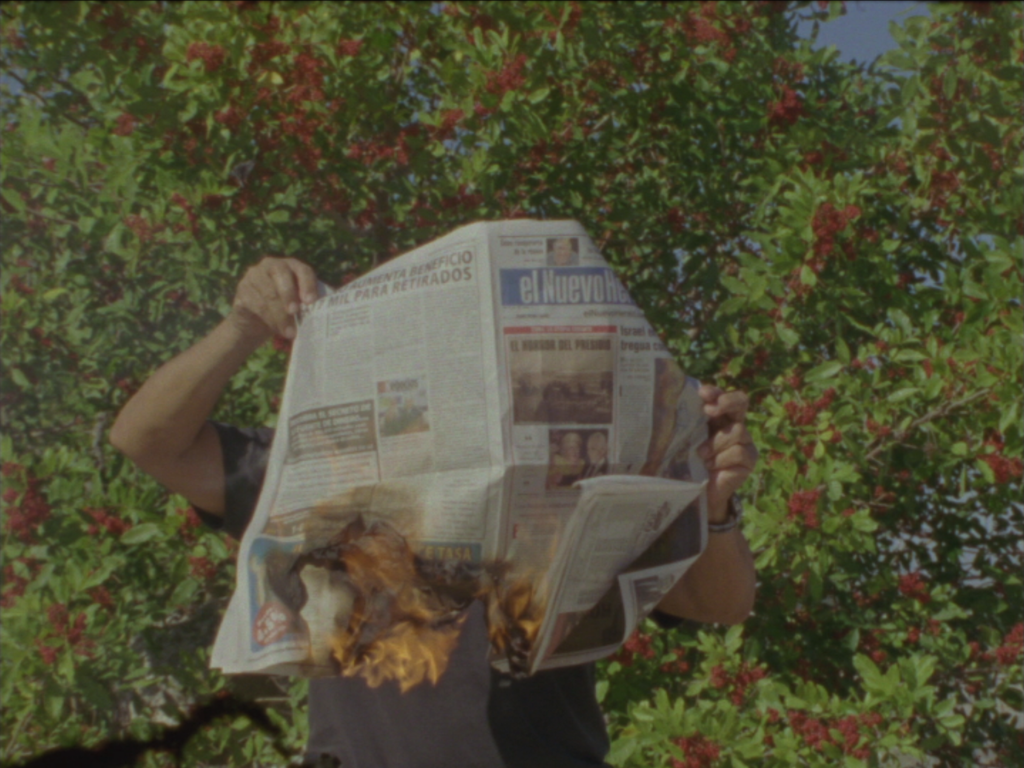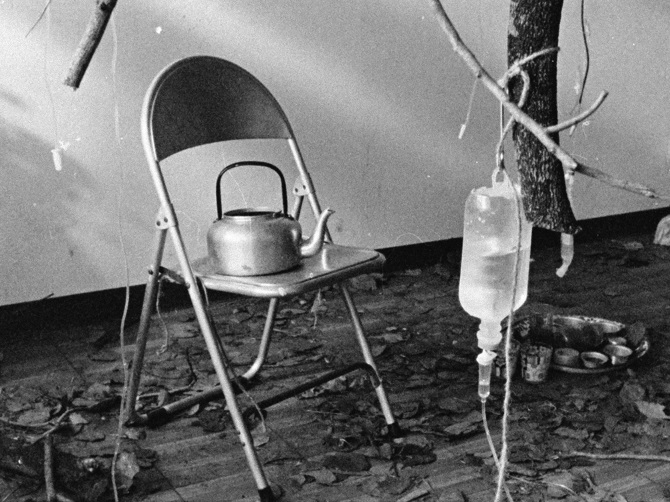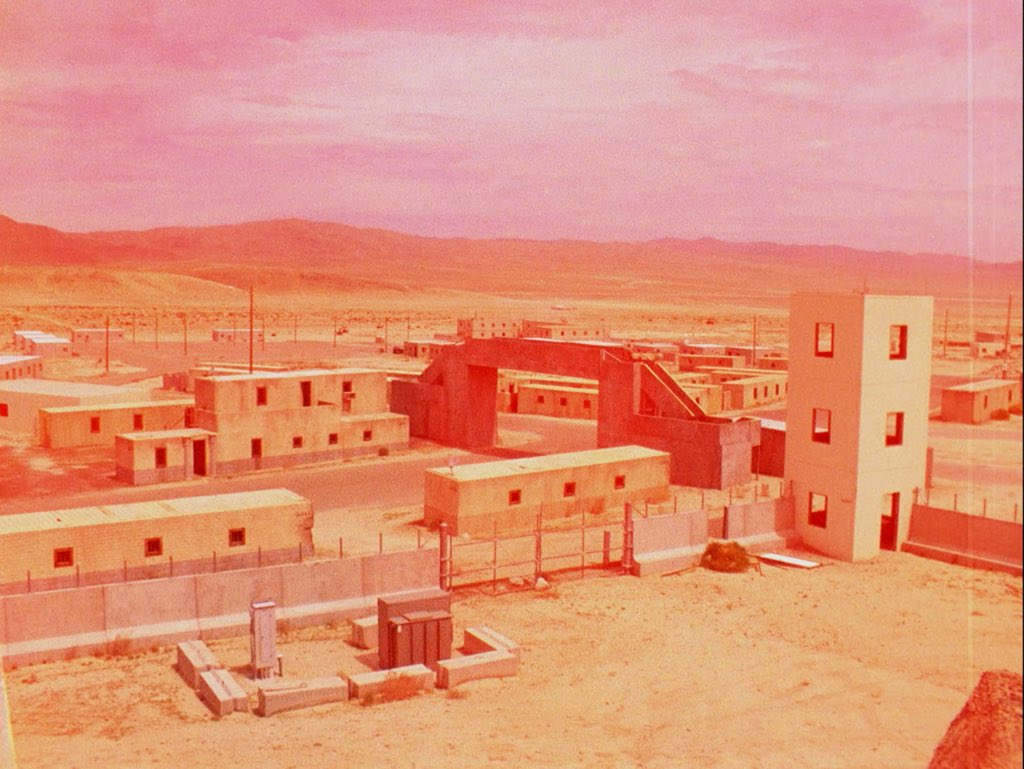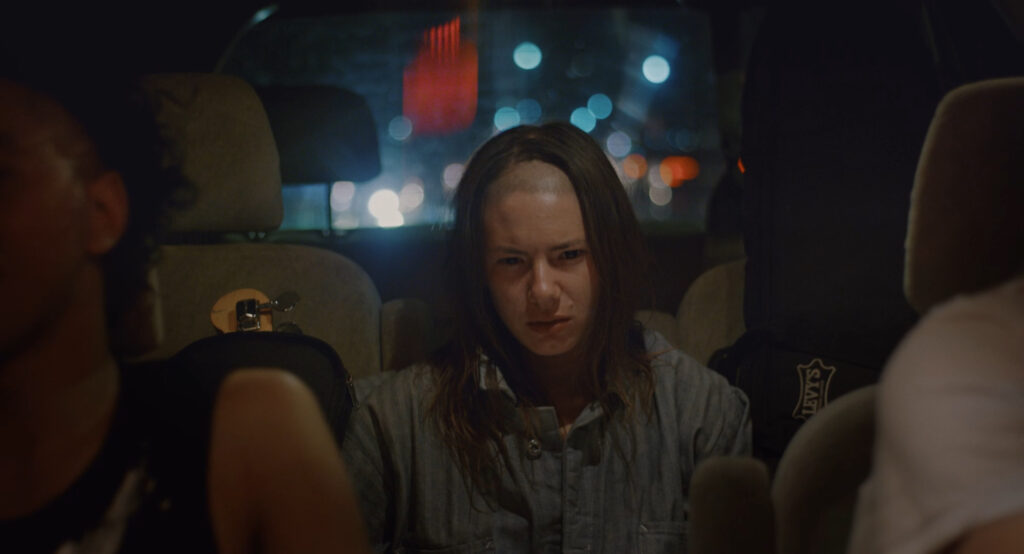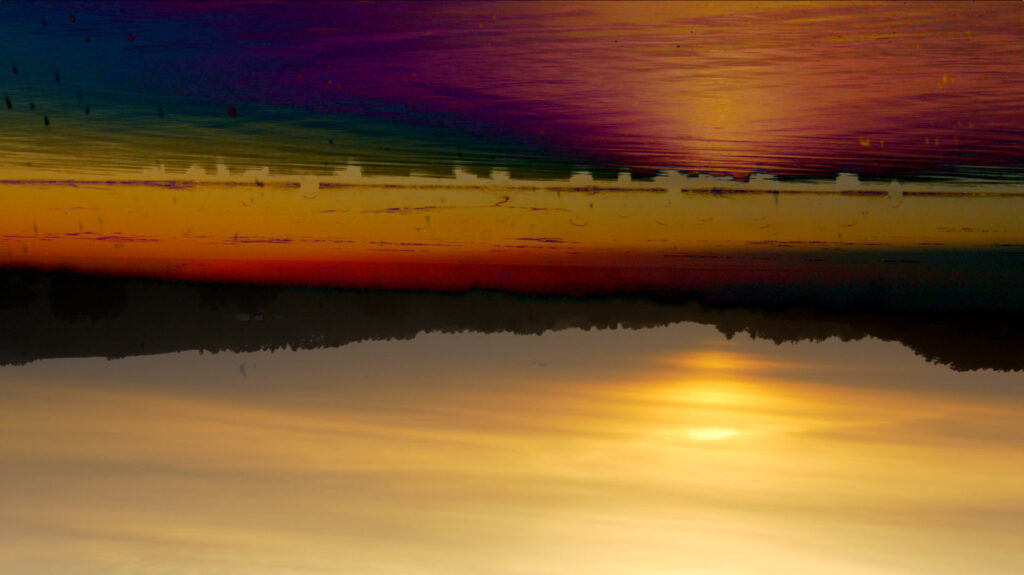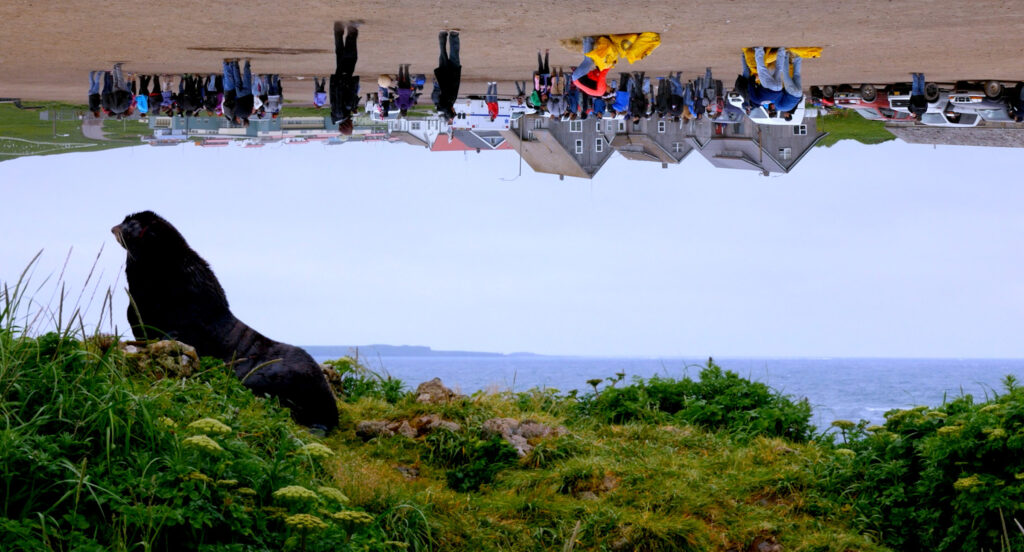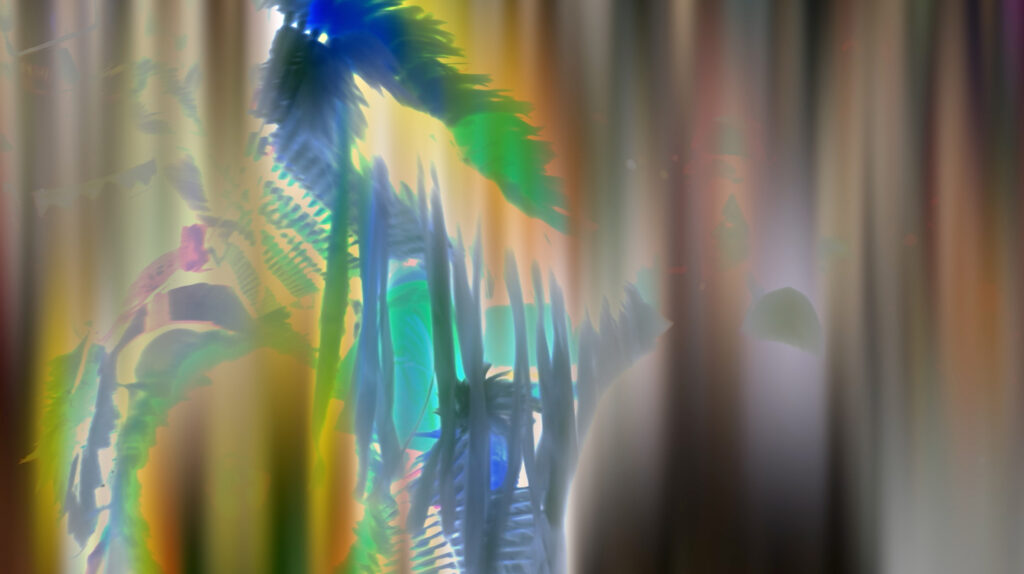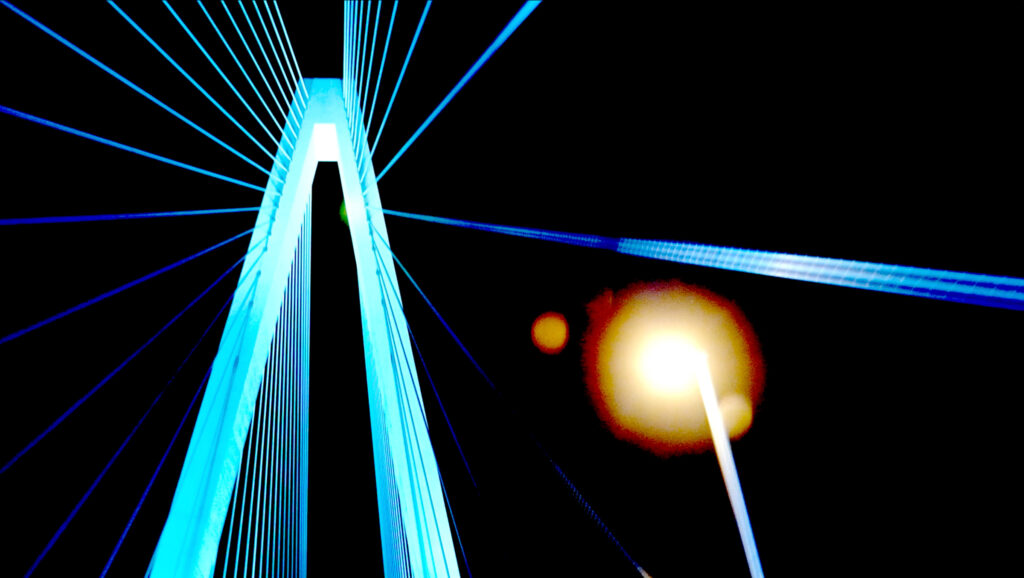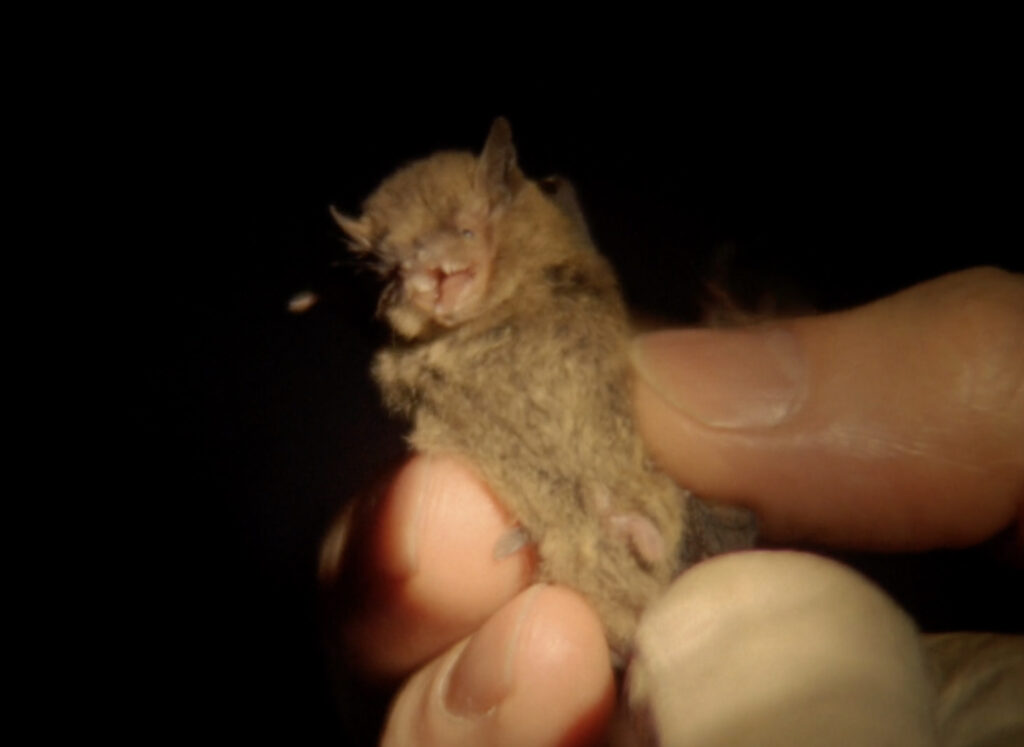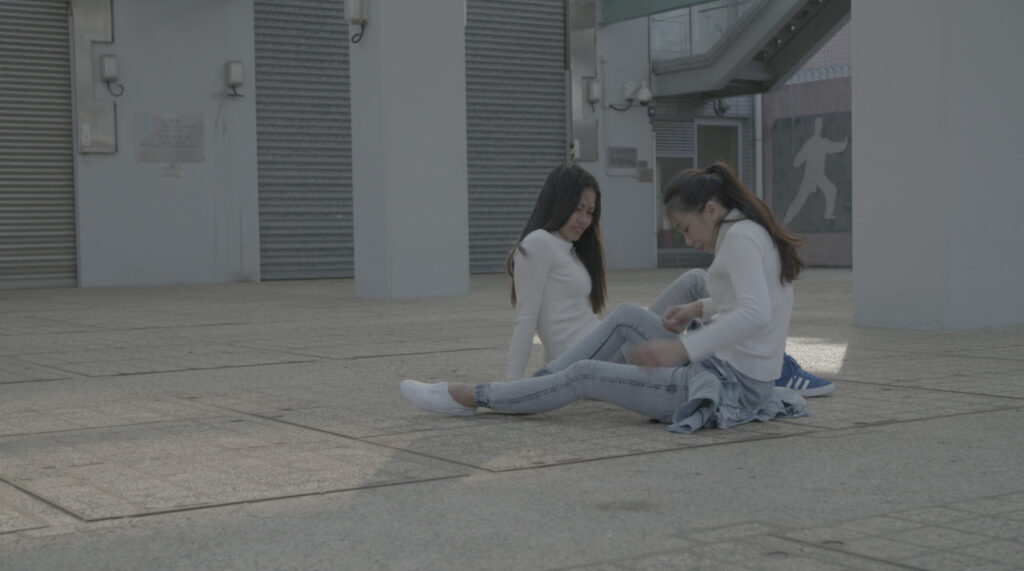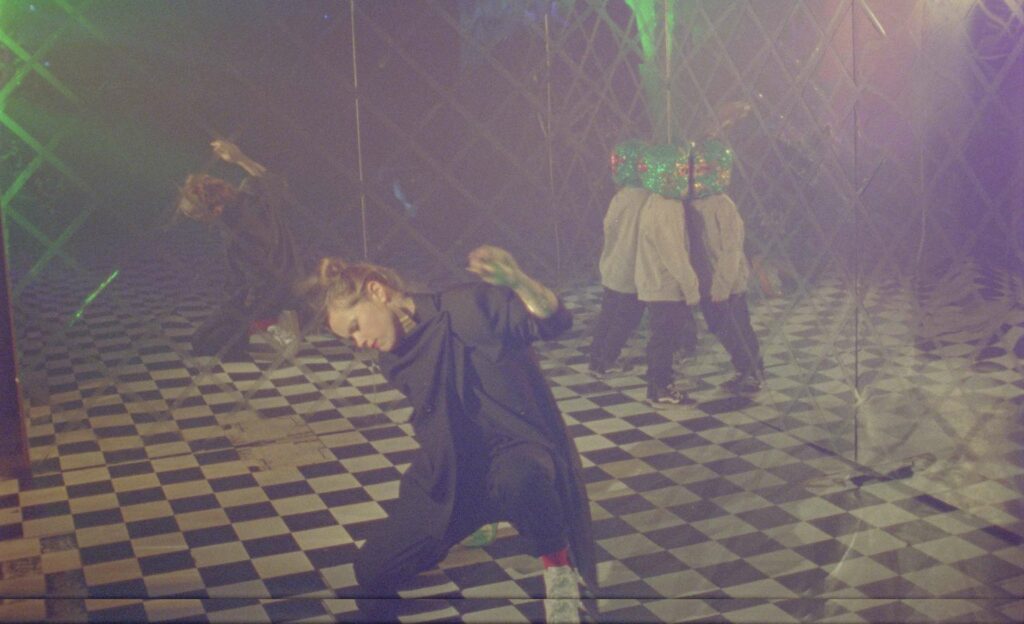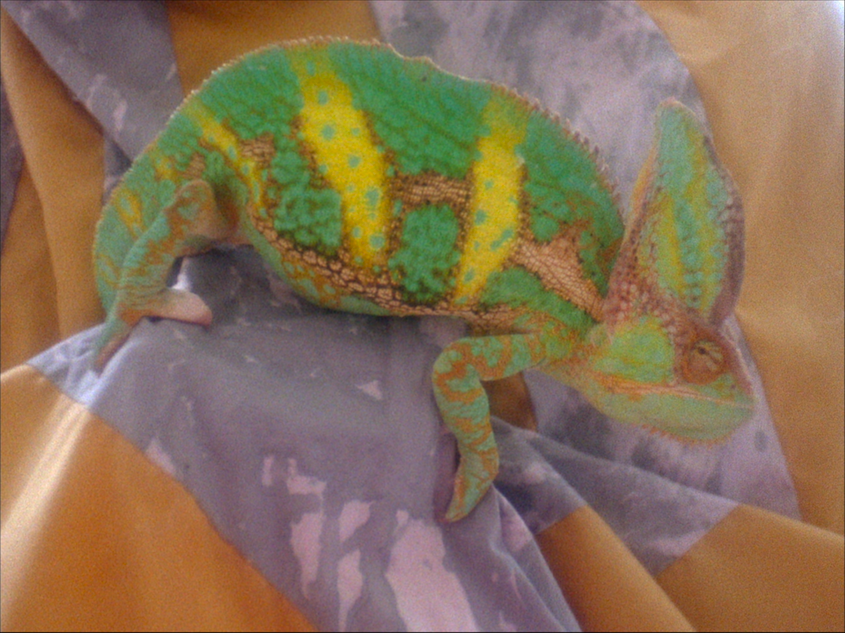Bathing explores themes of contamination, cleanliness, and debility through performance and dance. It is an adaptation of a performance Staff developed that features a solo performer moving in and out of a shallow basin of water. Between the performer’s movements, the video intersperses images of oil, spit, fluid landscapes, and U.S. border patrol, with flashes of a dog lost to a blissful state of chaos.
The work draws on Staff’s research into the classical figure of the bather, chemical effects, drunken revelry, and the spiritello figures that commonly adorn European fountains. The performer’s continuous actions and gestures eventually lead to overexertion of the body. A fluid cross-contamination between substance, performer, and image occurs, bringing to mind the ways in which bodies absorb and release chemicals, hormones, and other agents—a means of survival for some and potentially lethal for others.
The video embraces feelings of anxiety induced by stagnant water and its pollution, while expressing ambivalence about the supposed opposition between inebriation and good health, suggesting that states of intoxication may be compared to a queer mode of being. However, while offering the toxic as a possible source of liberation from conservative notions of well-being and capacity, Bathing also asks us to consider the inherent privilege in celebrating states of disorder and from whom those privileges are commonly withheld.
A conversation between a therapist and their client unfolds as a yellow ball swings back and forth. Replicating simple animations of online EMDR videos used to treat Post-Traumatic Stress Disorder, Consensual Healing feeds Octavia Butler’s short story ‘Bloodchild’ through scripted therapeutic protocols, destabilising relations between coercion and consent, form and content, trauma and fiction.
Music by Juliana Huxtable; sound by Marco Gomez
Between the dizzying hallucinatory landscapes and circular images of a lens or porthole, Hopinka takes us to a world of dreams, spirits and myths, revealing the story of Xąwįska, the Indian Pipe Plant used by the Ho-Chunk to revive those who have fainted. With abstracted and inverted images Hopinka moves from an editing station into the landscape, illuminating the sense of losing oneself, of fear and renewal. —Ruth Hodgins
Shine bright. Portraits of a nomadic musician and an animatedly-perverse single father butt up against a simulacrum of the Middle East and a tactile inquiry into the natural world. Taken together, expressions of personal, political, spiritual, mystical and sexual agency provide powerful statements of either resistance to or complicity in an increasingly commodified world.
Run Time
Empty Metal takes place in a world similar to ours—one of mass surveillance, pervasive policing, and increasing individual apathy. The lives of several people, each inhabiting poles of American social and political consciousness, weave together as each attempts to achieve some kind of forward motion, sometimes in contradiction, and always under the eye of more controlling powers.
A taut thriller, the film reveals a political fantasy, an alternative reality whose characters teeter on the dull knife edge that is contemporary American politics, at the same time refusing to fall right of left. Instead, they lash out from the soul, under the radar, in an attempt to achieve what their mainstream predecessors have yet to accomplish.
“Filled with energy, rage, and the smallest measure of hope, Empty Metal is a new kind of political film for these extraordinary times.” —Film Society of Lincoln Center
Q&A with filmmakers Adam Khalil & Bayley Sweitzer
Run Time
Filmmaker Sky Hopinka presents a screening of his short films in conversation with Nicole Yip, Director of LUX Scotland. Based in Milwaukee, Sky Hopinka (Ho-Chunk/Pechanga) focuses on the interconnections between his indigenous homeland, language, landscapes, and identity. Anchored by both surreal perspectives and grounded realities, Hopinka’s sublime films create maps of dreams and memories, pushing against cultural and personal boundaries, creating meaning where none had existed before.
Hopinka will read from his debut publication Around the Edge of Encircling Lake (2018) and the screening will include:
Kunįkága Remembers Red Banks, Kunįkága Remembers the Welcome Song, 2014, US, 9 mins
Jáaji Approx, 2015, US, 15 mins
I’ll Remember You as You Were, Not as What You’ll Become, 2016, US, 12 mins
Dislocation Blues, 2017, US, 17 mins
Fainting Spells, 2018, US, 12 mins
Special thanks to Ruth Hodgins, Walker Art Center
Run Time
Artist-filmmaker Jessica Sarah Rinland presents the world premiere of her film Black Pond, a film that explores the activity within a common land in the south of England. Previously occupied by the 17th century agrarian socialists The Diggers, the land is currently inhabited by a Natural History Society whose occupations include bat and moth trapping, mycology, tree measuring and botanical walks.
After two years of filming on the land, the footage was shown to the members of the Society. Their memories and responses were recorded and subsequently used as part of the film’s narration. The film does not offer a comprehensive record of the history of humans within the area. Instead, it explores more intimately, human’s relationship with and within land and nature.
Following the film, Rinland will dissect and expose materials related to the film, detailing content from a forthcoming publication related to the film. She will stage moments from the Society’s yearly town hall meetings, discuss historical maps and laws, letters of complaint and footage she shot in the same location years before her encounter with them.
Run Time
Glittering and shimmering moments: the tender touch of your child; the lumbering gait of a dancer dressed in an improbable costume; the luxury of a well-earned day off work. These glances, snapshots and memories are bound together in films alternating between the mundane and fantastic.
Q&A with filmmaker Beatrice Gibson


